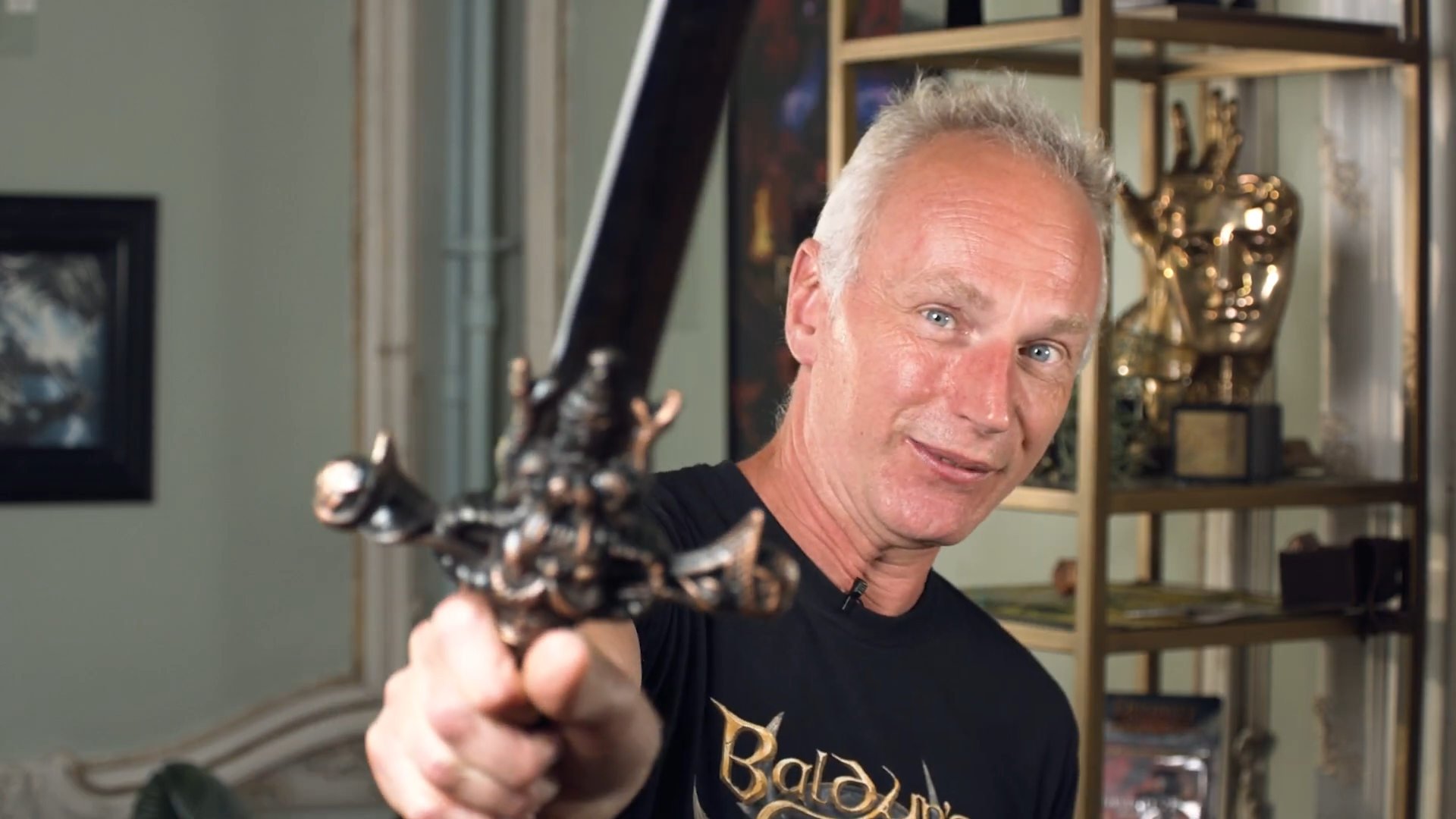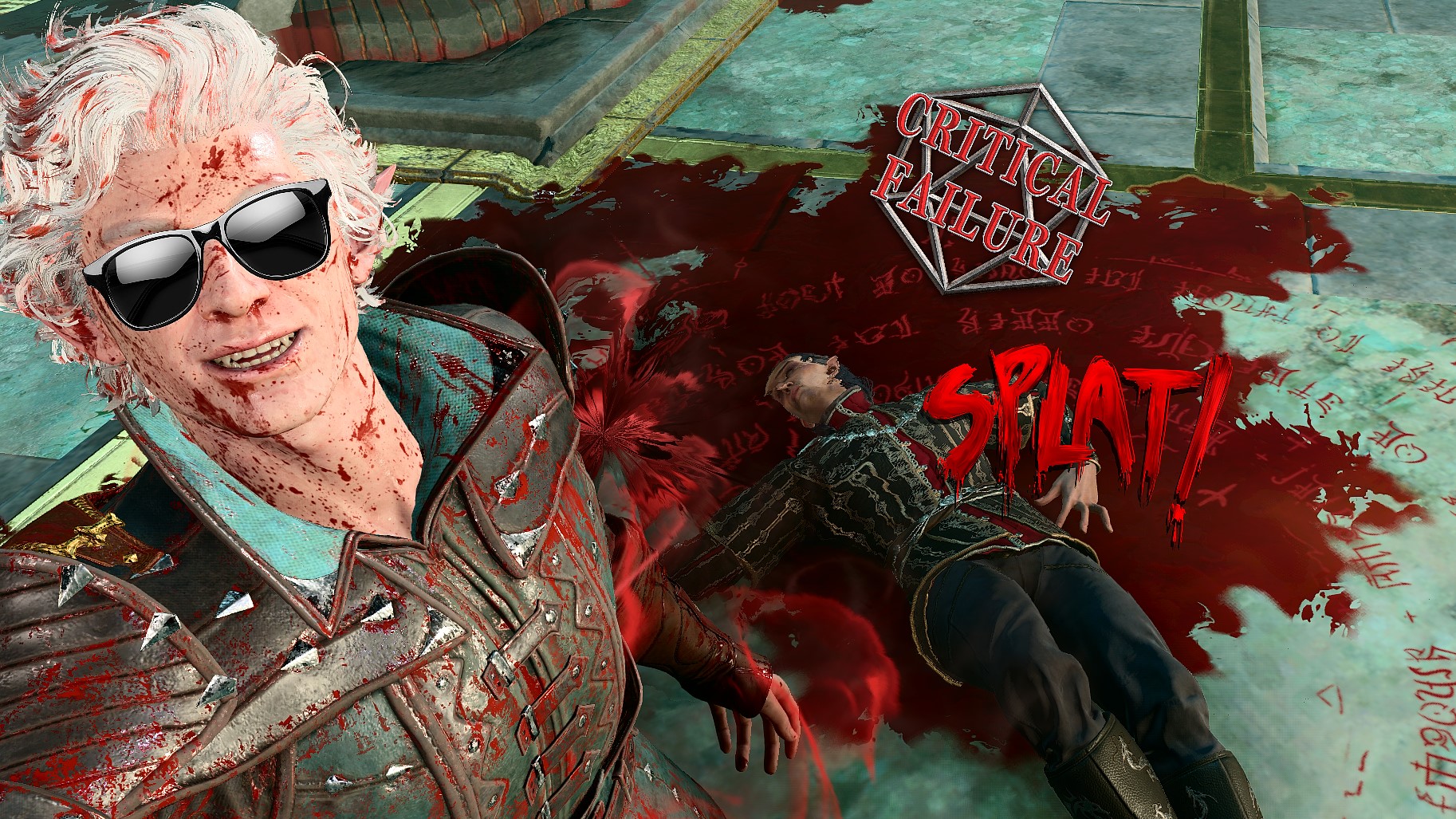
You tell 'em, Swen.
I’m fairly certain I’ve been alive long enough to see singleplayer games definitely, 100%, for sure die at least three times, roughly on par with the number of times I’ve seen industry panjandrums declare PC gaming dead, too.
These days, it’s because C-suites are convinced splashy live-service games stuffed to the gills with microtransactions are the way to generate more money than god, and even though that philosophy has taken a few knocks of late, it’s an idea that’s proven tough to dislodge. Step in literal knight in shining armour Swen Vincke, CEO of Baldur’s Gate 3-maker Larian, to throw hands for the continued relevance and importance of singleplayer games in a chat with GameSpot.
Vincke refuses to name names, but says the singleplayer-is-dead talk recently came up “from some very high-profile people,” and that drove him round the bend. “It frustrated the hell out of me, because what it does is it cuts off a whole bunch of avenues, because from that side you will not get the funding into singleplayer narratives.”
It’s a self-fulfilling prophecy, in other words. If the moneymen convince themselves singleplayer is dead, they don’t give their money to singleplayer projects and, well, singleplayer starts dying (although you’re never gonna fully kill it, let’s be real).
Where does that kind of talk come from? I’ll give you one guess. Vincke says he hears it “coming from directions where it’s all focused on the microtransactions, ‘milk-it-all-you-can’ type of business models.” And hey, he kind of gets it, a hit stuffed with microtransactions is probably gonna produce “more revenue than you’re going to get from your singleplayer games,” but it’s a leap of logic to then conclude that “singleplayer games are not a viable market.”
After all, says Vincke, “there’s lots of people that want to play a really good singleplayer game and put money in it.” Larian proved that itself: “I think we’ve proven with BG3 that you can put in a pretty high budget and expect pretty high results.” But if high-profile figures in the industry keep repeating that singleplayer is dead, that idea can percolate whether it’s true or not, affecting everyone’s chances of funding and success with singleplayer stuff.
But it’s not just about singleplayer projects getting funding. In Vincke’s view, funding a diverse range of projects is vital to keeping games evolving. As he puts it, continuing to clone this or that breakout hit—even if it’s your own—just leads to stagnation and diminishing returns. “If you are going to just clone the games that are successful and bring those to the market and not innovate at all, then you can expect that they’re not going to sell.”
Vincke summons an example of the wrong kind of thinking: “Market research has shown that there’s still a market for My Little Pony simulators in which you go to a hotel in Bavaria, let’s make that game. That’s not the right reason for making a game.” Personally, I think Vincke could have used an example that was less strikingly whimsical than Bavarian Hotel Pony, but I take his meaning.
“We are an example of a company that at some point had external funding from non-games-industry people,” warns Vincke. “If somebody would have kept on repeating that singleplayer games don’t make money they wouldn’t have invested in our singleplayer game, and that would have been game over.”
Baldur’s Gate 3 romance: Who to pursue
Baldur’s Gate 3 multiplayer: How co-op works
Baldur’s Gate 3 endings: For better or worse
Baldur’s Gate 3 multiclass builds: Coolest combos
Best RPGs: The greatest you can play now







